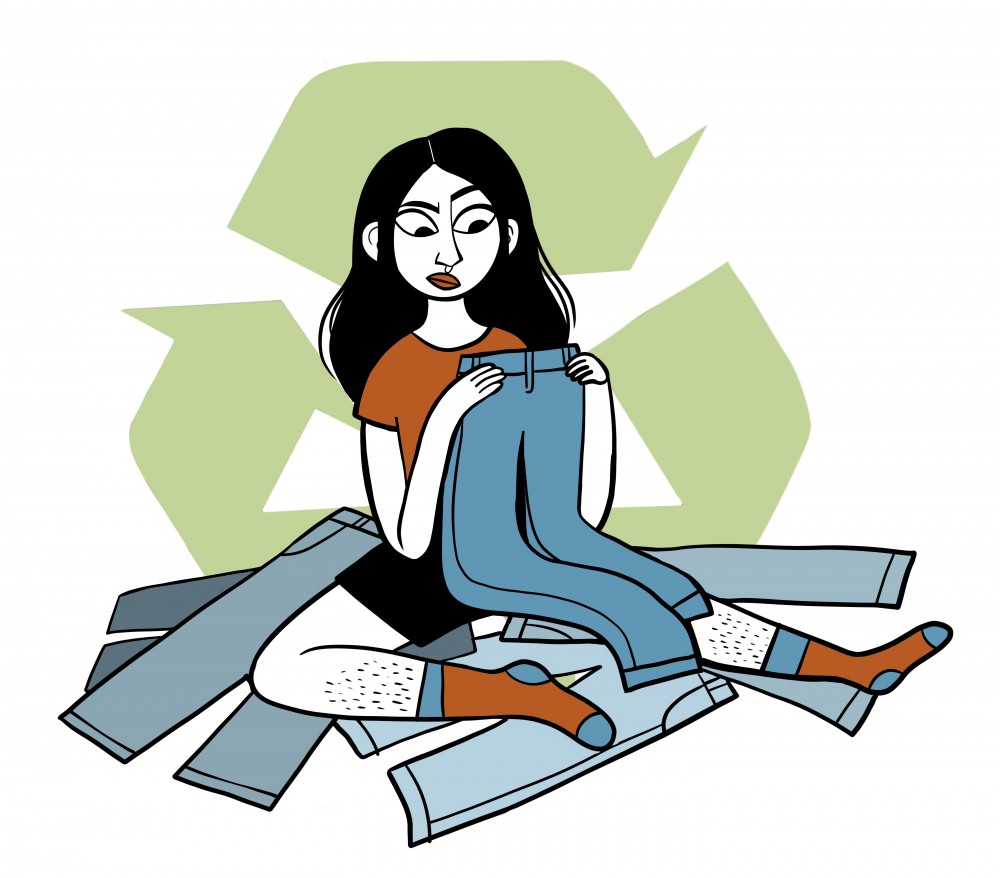In an effort to bring awareness to textile waste, the Minnesota Student Association is calling on the University of Minnesota community to donate its denim.
The initiative, “Blue Jeans Go Green,” is launching this semester to collect denim items for recycling. MSA’s sustainability committee was selected to partner with Cotton Incorporated, a nonprofit organization that researches cotton usage, to run textile waste events. Throughout the fall semester, MSA will host “denim drives” and place denim donation boxes around campus.
“Denim is a very damaging material to the environment to produce,” said University Reuse Program Coordinator Todd Tanner. “The recycling of denim doesn’t reduce the need for new denim, [but] it does reduce the need for the extraction of materials to make whatever the new product is. There’s a positive impact there.”
Once the semester is over, the denim will be sent to a recycling facility, where all its decorations, like buttons and zippers, will be removed and the denim is returned to its original fiber state — cotton. The cotton will be used to create insulation for organizations, like Habitat for Humanity .
Cotton Incorporated, the creator of Blue Jeans Go Green, selects a few college campuses each semester to run these events. MSA Sustainability Committee Director Megan Connor has been vying for Cotton Incorporated to select the University since early March 2019. She said her passion for the project incentivized her to get the attention of fellow students and the administration about denim recycling.
“While there is currently no specific policy or department on campus that focuses on textile waste, there still are some projects that we can do that spread awareness,” Connor said.
There are few donation sites near the University, Tanner said, though some sites can be reached by the Green Line. Tanner said a majority of Americans believe that textiles are easily recycled, when that is simply not the case.
As of 2014, approximately 9.5 percent of waste consisted of textile and clothing materials, according to the Environmental Protection Agency.
Due to misinformation on web searches and lack of transparency from companies, the myth that all clothing can be recycled continues, Tanner said.
He said students should be wary of donation sites advertising recycling that accepts all types of clothing. Many companies cannot process mixed textiles into a usable end product material.
By partnering with Blue Jeans Go Green, MSA said it aims to make the path to clothing sustainability easier for the student body, even if they are only accepting one type of textile.
In a statement, Cotton Incorporated said that they were “excited to work with MSA” to educate the University on denim recycling.
“…We hope MSA will share this message, rally their peers, and inspire people to participate by recycling their old denim for a good cause,” the statement read.
Correction: A previous version of this article misstated how many colleges Cotton Incorporated chooses for the Blue Jean Go Green initiative. Cotton Incorporated chooses multiple campuses each semester.
Clarification: A previous version of this article indicated Habitat for Humanity was the only organization to which Cotton Incorporated sent insulation. Other organizations also receive insulation from Cotton Incorporated for building efforts.

















